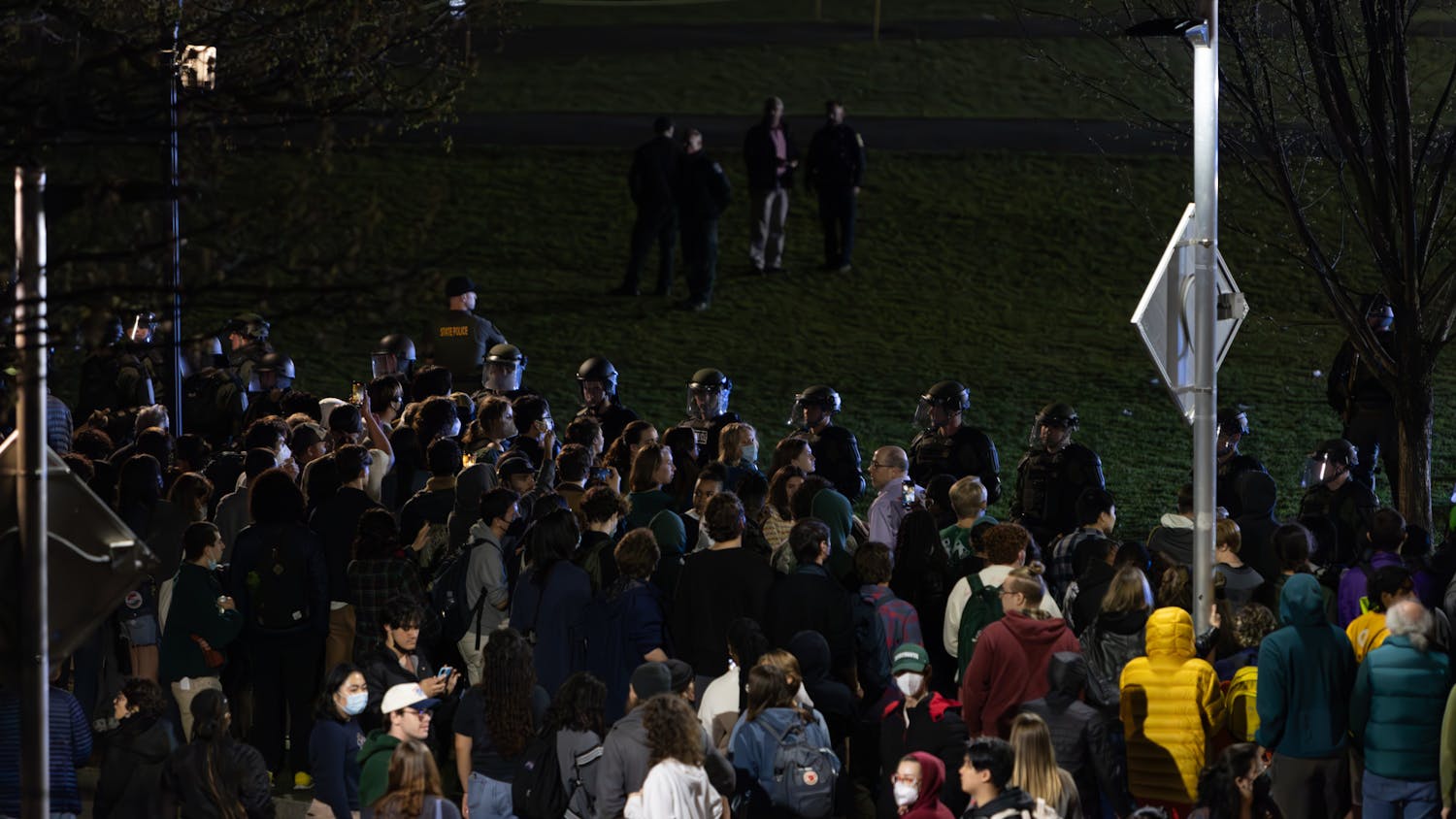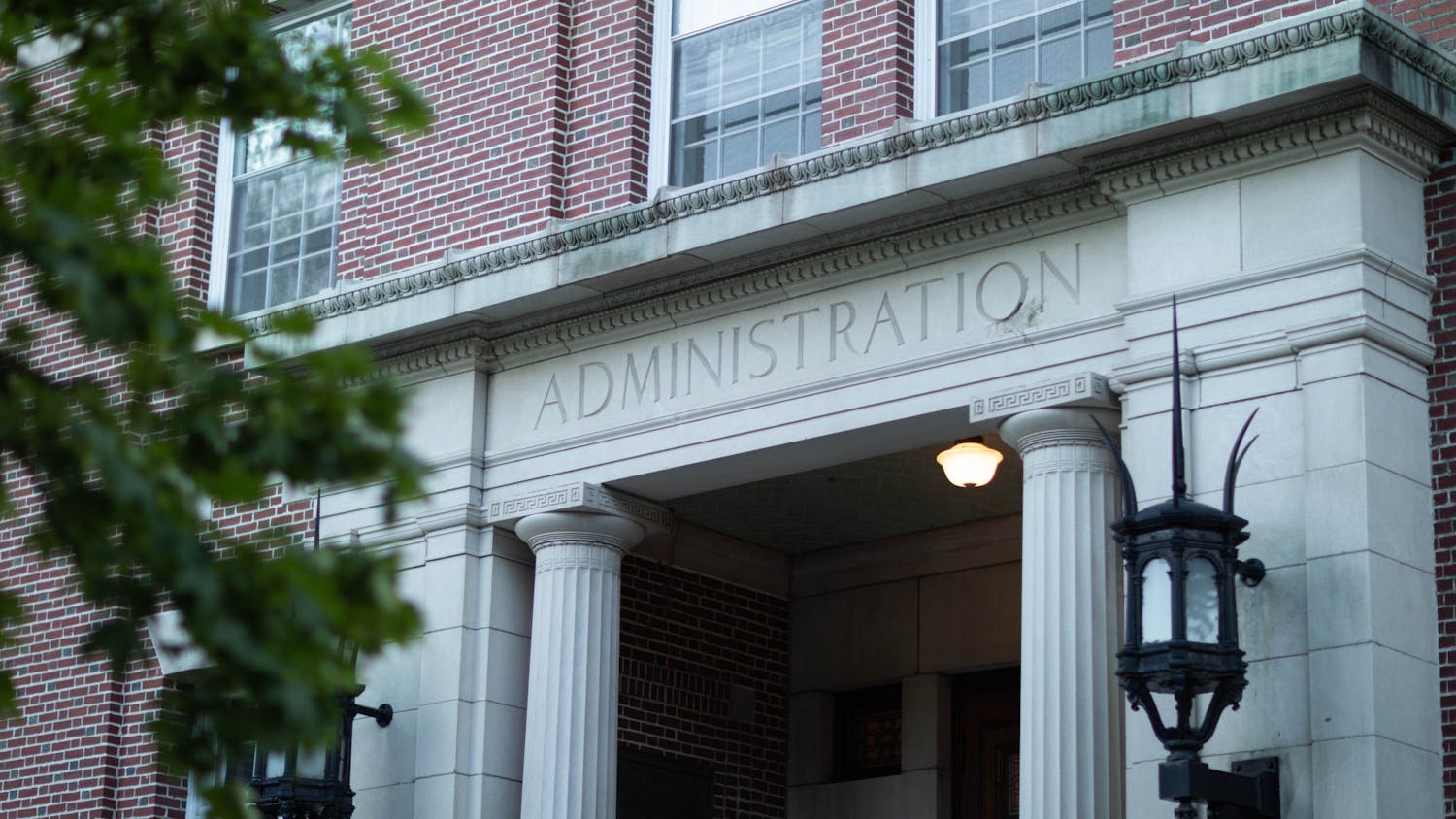Following the Board of Trustees’ March 8 vote to raise tuition, room, board and mandatory fees by the lowest percentage increase since 1977, education policy experts pointed to both national tuition trends and Dartmouth’s 14 percent drop in application numbers as possible reasons for the reduced growth in price.
The Board voted to raise the College’s tuition, room, board and mandatory fees by 2.9 percent to $61,947 for the 2014-15 academic year.
Center for College Affordability and Productivity director Richard Vedder said the unusually large decline in application numbers may have pushed the Board toward making a cautious decision about raising fees. Vedder said that although Dartmouth’s applicant demand remains high, the College must be more sensitive to application numbers — which are partially determined by costs — if it wishes to remain selective.
Andrew Gillen, an education researcher at American Institutes for Research, added that the College might be concerned about its U.S. News and World Report rankings, which are influenced by a school’s selectivity. By lowering its rate of tuition growth, Dartmouth might attract more applicants and hence boost its selectivity, Gillen said.
Between 2009 and 2014, tuition and fees have increased an average of 4.8 percent per year. The lower increase also comes in the wake of fiscal year 2013, when the College’s expenses exceeded its revenues for the first time since 2009.
Vedder added that the College might be trying to differentiate itself from its peer institutions, which typically increase tuition by about 4 percent annually.
Among Ivy League institutions that have released 2014-15 tuition amounts, only Dartmouth will raise tuition by less than 3 percent, but its sticker price is the highest of released Ivy League schools.
Princeton University will increase its total cost for next year to $58,963, including a 4.1 percent tuition increase. Brown University’s total undergraduate cost will rise 3.8 percent to $59,428. The typical cost of attendance at Cornell University will rise 3.26 percent to $60,728. Tuition, room and board at Yale University will rise 4 percent to $59,800, and the University of Pennsylvania will increase its tuition and fees by 3.9 percent to $61,132.
As of press time, Harvard University and Columbia University had yet to release tuition amounts for the next academic year.
Jennifer Ma, a College Board policy analyst, said in an email that few private nonprofit four-year schools cut their sticker tuition prices last year. She added, however, that private universities are likely to offer tuition discounts, lowering the net prices that students actually pay.
Average in-state public university prices increased by 2.9 percent in the 2013-14 year, the smallest growth in three decades, according to a College Board report released last year.
College President Phil Hanlon called on Dartmouth administrators to identify 1.5 percent of their budget as available for reallocation, enabling the smaller tuition increase.
In a faculty meeting last fall, Hanlon said Dartmouth’s tuition rate would likely remain flat and reflect a “justifiable rate of inflation.” He said that he would endeavor to keep the cost of attendance down.
The Consumer Price Index, the most commonly used measure of inflation, rose 1.5 percent in the 12 months ending December 2013, after a 1.7 increase in 2012, according to the Bureau of Labor Statistics. .
According to the College’s 2012-13 financial statement, salaries and wages accounted for around 42 percent of Dartmouth’s expenditures. In the same year, net tuition and fees accounted for roughly 22 percent of revenues.
Although people consider more than price when deciding whether to attend Dartmouth, Vedder said, cost of attendance remains a large consideration, especially as perceptions regarding the value of a college education change.
The 2014-15 cost of attendance is $65,133. This year,with a total cost of attendance of $63,282, Dartmouth was the second most expensive school in the Ivy League, following Columbia.
The article has been revised to reflect the following correction:
Correction appended: March 27, 2014
The initial version of this article said that the College's "sticker price" would rise by 2.9 percent to$61,947. This number refers to the billed charges, not the miscellaneous expenses that comprise the total cost of attendance. Each initial reference to a "sticker price" has been clarified.



